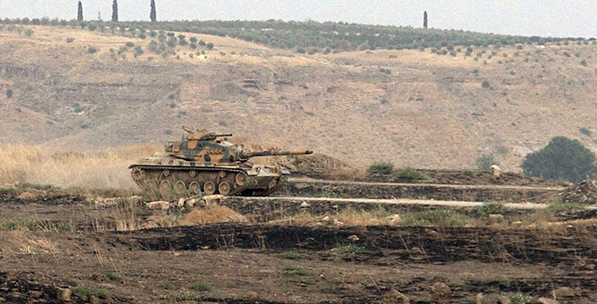Turkey’s political history is replete with vicious and virtuous circles floating between hope and despair. Periods characterized by virtuous circles of socio-political stability, economic growth and accelerated international integration are often followed by periods of political polarization, economic stagnation and international isolation. Following the virtuous political, economic and international trends which brought Turkey to the league of emerging powers in the first decade of the 2000s under successive Justice and Development Party (AK Party) governments, there emerged the first signs of a systemic impasse between 2011 and 2013. Then the Gezi incidents and Dec. 17 and Dec. 25 operations amid claims of politically-motivated corruption stimulated socio-political polarization and paved the way for economic slowdown in an environment of global uncertainties. The incumbent AK Party paid the political price of the lost national momentum by receiving 41 percent of the votes in the June 7 general elections, but failing to form a single party government following 13 uninterrupted years in power. The emerging political vacuum was immediately abused via the launch of a series of terrorist attacks by ISIS and the PKK, while coalition negotiations were still in progress. It does not require tremendous expertise to predict that another vicious circle associated with domestic socio-political wrangling, economic slowdown (if not crisis) and pressures aimed at isolating Turkey in international platforms might be in the horizon in coming months.
The shocking aspect of the wave of terrorist violence that struck Turkey this week was that it originated from the radical-Islamist ISIS and secular-Kurdish nationalist PKK at the same time. An ISIS-affiliated suicide bomber blew himself up in the Suruç province of Şanlıurfa along with 32 young activists who were preparing to go over the border to Kobani in Syria to show solidarity and support with the Kurdish PYD-YPG forces. Then came the news that the PKK killed two police officers in Şanlıurfa and another one in Diyarbakır. Soon after we heard that there was a clash between the Turkish border guards and ISIS militants near Kilis in which one Turkish sergeant lost his life. Meanwhile, assassinations were going on between the sleeping secret cells of ISIS and the PKK across Turkey. If there was a macro-level plan (or conspiracy) to import the spiral of terror from Syria to Turkey via a conflict between the supporters of the PKK-PYD and ISIS, unfortunately it seemed to be working well within its first week.
Interestingly, the Turkish state and security forces that were declared targets by ISIS bothered by the intensification of security measures and border controls and the PKK wrongly accused Turkey for supporting ISIS to kick-start violent attacks despite the progress made in the reconciliation process. Under these pressing conditions, the Turkish state conceivably passed into a “security maximization” mode in the context of which ISIS targets in northern Syria were hit by air raids, while both ISIS and PKK cells within Turkey were targeted by police-intelligence operations. Despite the relative vacuum in domestic politics in the wake of coalition discussions, the country has entered a phase of pre-emptive measures against domestic and international sources of terrorism. The formation of a new government through a coalition or fresh elections (despite the new security risks that an electoral campaign might trigger) acquired new importance and urgency.
Meanwhile, Turkey’s foreign policy line based on the removal of Bashar Assad and support for the Free Syrian Army (FSA) as its first strategic priority is likely to go through a revision toward prioritizing effective struggle against ISIS. Turkey’s President Recep Tayyip Erdoğan and the AK Party government are extremely disturbed by the biased international media campaign that tried to denigrate Turkey’s support for the Syrian opposition and reflect a false image associating








